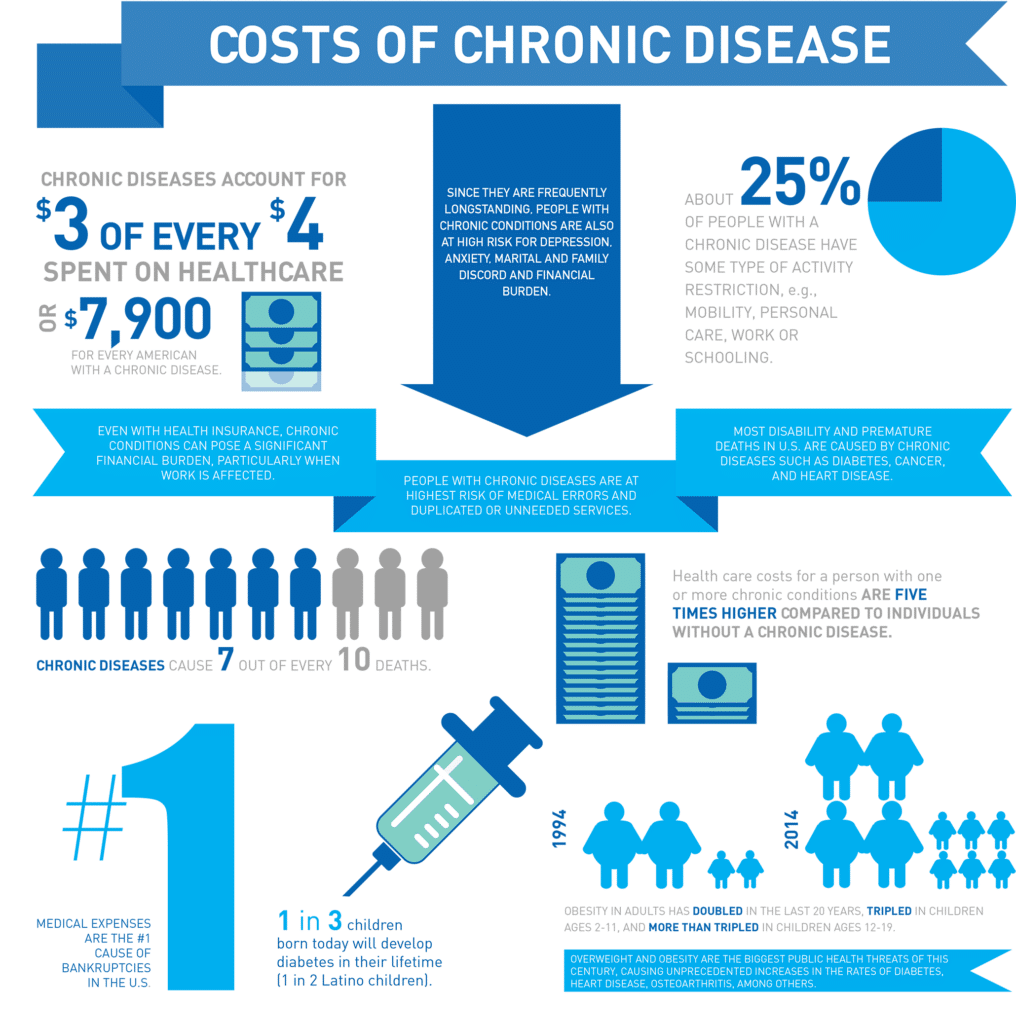
It is no secret that there is a health crisis currently affecting both this country and the world.
With an exponential increase in chronic preventable diseases such as obesity and diabetes coupled with ever-increasing healthcare costs, a massive need for health coaching has been created.
Additionally, Americans are becoming more educated on the impact of lifestyle on their well being.
More people are looking for guidance, education, and encouragement as they work to live a healthier lifestyle. As a health coach, your ability to provide these things puts you in high demand.
Health coaching has risen 38 percent in the last few years. With the turn toward preventative medicine to reduce health costs, as well as the push to address chronic illness, health coaches are in an excellent position to create their own health-coaching business or be employed by a clinic, hospital, or corporate setting.
The benefits of health coaching are also great for employers. If people are healthier, that can lower insurance costs for employers. With some companies, you can even get a bonus at work or at least pay less for insurance.
Below we will take a closer look at some of the reasons health coaching has become such a booming field recently.
Limited doctor-patient time
A scheduled visit with a physician seems to be set to a timer. The doctor, who might not even bother to sit down, asks a few perfunctory questions, makes a quick diagnosis, and writes a prescription (which sometimes isn’t even necessary). Then they’re off to the next patient.
Does your doctor have time to chat with you about your health habits, nutrition, lifestyle, and activity level? Probably not. And, they clearly don’t have the time to discuss any added emotional stress.
But not so surprisingly, these are important discussions that may actually be what keeps you well.
The time crunch may be putting a strain on the doctor-patient relationship, but it’s also among the factors helping to create job opportunities in the growing field of health coaching. Health coaches act as mentors, motivating their clients to make better decisions with their diet and exercise routines, and assisting with stress reduction, all of which can lead to better health and fewer doctor visits.
Acute diseases are being outnumbered by chronic diseases
According to the CDC, “As a nation, we spend 86% of our health care dollars on the treatment of chronic diseases. These persistent conditions—the nation’s leading causes of death and disability—leave in their wake deaths that could have been prevented, lifelong disability, compromised quality of life, and burgeoning health care costs.”
Many preventable, chronic diseases are lifestyle-derived and are not what our current medical landscape is well equipped to manage.
There is no magic pill for lifestyle-related diseases.
Many health coaches were inspired to pursue the career after feeling like the healthcare system had failed them.
Insurance companies want to cut costs
Studies show that health coaches can help people manage chronic conditions (like diabetes), lose weight, and keep it off, increase movement and activity, and generally improve their physical and mental health. Employers and insurance companies appreciate that coaches can help bring down patient coverage costs and reduce claims.
When people are educated about their health, they are more likely to make healthier choices and to recognize and treat problems before expensive complications occur. Changes in the nation’s health coverage standards are adding to this drive, further improving the job outlook for health coaches.
The Future of Health Coaching
It is expected that the demand for health coaches will continue to grow. In a hurried medical environment, promoting long-term healthy behavior change (a major undertaking) is nearly impossible, even for the most caring of practitioners.
For most individuals, learning to change health habits requires a significant change of mindset.
Lifestyle change is difficult to implement because it requires the individual to stop and make conscious, in the moment decisions about many aspects of life that were once habitual.
What well-trained coaches do best is to support patients in making sustainable day-to-day health habit changes.
Coaches offer the vital partnership and accountability that patients often need to build new habits that will really stick.
Our Latest Blogs
-

Student Spotlight: Debra Lewis
Read Full Article: Student Spotlight: Debra Lewis -

DTC Lab Testing Summit: From Results to Lifestyle Change
Read Full Article: DTC Lab Testing Summit: From Results to Lifestyle Change -

Enabling Predictive Health through Multi-Omic Analysis
Read Full Article: Enabling Predictive Health through Multi-Omic Analysis

